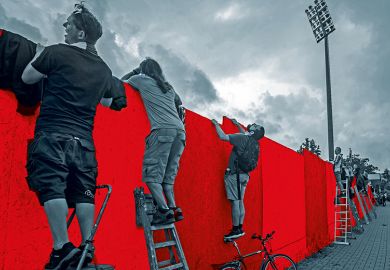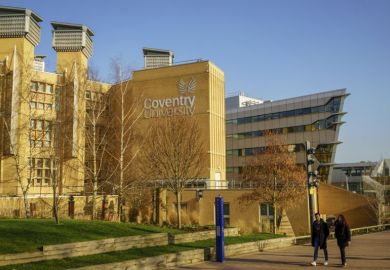For decades now, it has been clear to anyone with an interest in academic exchanges that unfair access to knowledge has affected the ways in which academies across the world develop. Open-access initiatives, powered by the signing of agreements between governments, organisations and publishers, have begun to take knowledge from behind paywalls. Unfortunately, all of these attempts have so far fallen short of what is needed.
Yes, open-access initiatives such as Plan S have resulted in wider availability to audiences across the world of articles authored or co-authored by scholars based in various Global North institutions. However, this has placed colleagues in the Global South at an even greater disadvantage. They have more access to knowledge produced in the Global North, but their own research continues to be published behind paywalls. So while research from the Global North gets all the readership and citation advantages that flow from their papers being freely available, researchers from the Global South do not, widening the reputational gap.
University-led attempts to rectify these inequities are under way and there are reasons to be hopeful. The Africa Charter, championed by the universities of Bristol and Cape Town, is a case in point. Another multi-country initiative, the Knowledge Equity Network, was pioneered by the University of Leeds and now is jointly carried forward by signatory universities from every corner of the world. The aim is to bring colleagues from the Global North and South together to advance and support truly collaborative initiatives where all partners are considered equals.
A second, arguably more important and intractable issue is the unequal and, to a certain extent, unethical access to research (and teaching) funding. To put it simply, Global North governments and organisations, first and foremost, fund their own. Principal investigators are virtually always required to be based at Global North institutions, while colleagues from the Global South continue to be relegated to co-investigator, research and teaching assistant roles, regardless of their own independent standing in their fields and of their potential contribution to solve looming local, regional and global challenges.
Trickling down funding to the Global South through grants that can only be accessed by Global North colleagues intrinsically perpetuates inequity. Yes, there are political and financial considerations associated with how funds are distributed, but it is becoming harder to listen to Global North organisations and education leaders that claim to be committed to levelling up the field, while they continue to support structures that do exactly the opposite.
Within this precarious ecosystem, Global North universities have an opportunity to lead. Taking steps to promote a more equitable sharing of resources with universities in the Global South, for example, could be a starting point. Lobbying governments and funding bodies to make their schemes more inclusive and equitable is another possible way forward.
Taking such steps is essential to foster an ethical, fair and balanced international academic landscape and to advance a truly global education. Not doing anything will almost certainly contribute to an even wider chasm between Global North and Global South scholars.
More poignantly, we will be missing out on an opportunity to create radical knowledge and innovations that provide solutions to urgent grand global challenges. Such breakthrough innovations typically stem from combining diverse knowledge inputs. They will not occur at the pace we want as long as we continue to prolong short-sighted and unequal systems of access to knowledge and funding.
There are plenty of examples of how such collaboration can come into existence and make a global difference, especially around food security and climate change. Another distinctive example is the World Health Organization’s ACT Accelerator partnership, devised by scientists from Global North and South institutions to support a coordinated and successful global effort to fight Covid-19.
National fears of losing out on grant awards need to be considered, yes. But even if this will be an uphill battle, that doesn’t mean we should shy away from it. Ultimately, we need to be able to see beyond the immediate consequences of decisions that might benefit all of us in the medium and long terms. University of Southern California professor Leo Buscaglia, famous in the 1980s as an expert on love, once said that “change is the end result of all true learning”. He was right. Governments, funding bodies, publishers, university leaders, academics and scholars everywhere should recognise the need for greater global equity in research – and act on it.
Manuel Barcia is dean of global engagement and chair of global history at the University of Leeds.
Register to continue
Why register?
- Registration is free and only takes a moment
- Once registered, you can read 3 articles a month
- Sign up for our newsletter
Subscribe
Or subscribe for unlimited access to:
- Unlimited access to news, views, insights & reviews
- Digital editions
- Digital access to THE’s university and college rankings analysis
Already registered or a current subscriber? Login








